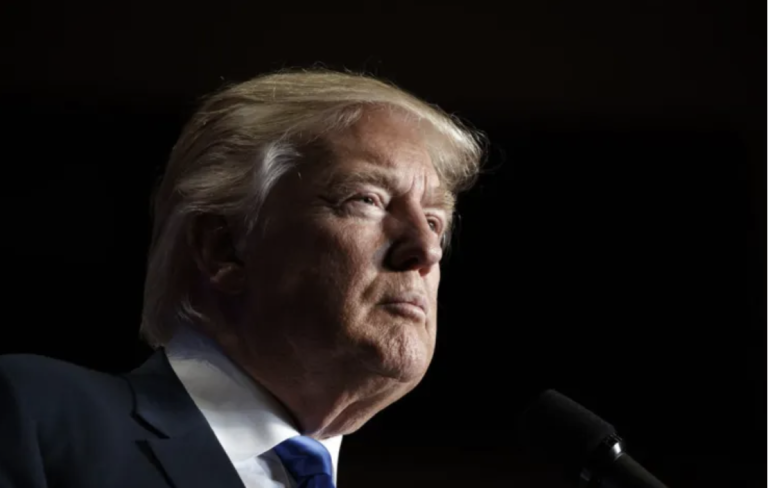
The Hawaii State Legislature has passed a major bill that could prevent former President Donald Trump from appearing on the state's ballot in the upcoming election.
The legislation, introduced by State Sen. Carl Rhodes, focuses on applying the 14th Amendment's rebellion clause as a basis for disqualifying a candidate.
After its initial reading last month, the bill is subject to a public hearing by the Judiciary Committee.
SB 2392, which passed Tuesday, did not mention Trump by name. However, its language is clearly intended to prevent any candidate deemed to have engaged in insurrection or rebellion against the United States, as defined in Section 3 of the Fourteenth Amendment, from holding office. Similar explanations have been used in other states, such as Maine and Colorado, to challenge the former president's eligibility.
The bill states that “election ballots issued by the chief election official or county clerk shall disqualify any candidate who has been disqualified under a constitutional or statutory provision. Provides a process for challenging the inclusion or exclusion of a candidate from the ballot. Includes disqualification of a candidate as a basis for a complaint regarding contestation in the election .Stipulates that electors for presidential and vice presidential candidates shall not be individuals disqualified by constitutional or statutory provision. “Electors are prohibited from voting for any presidential or vice presidential candidate who has been disqualified under Section 3 of the Fourteenth Amendment to the Constitution of the United States.”
“The Legislature holds that the citizens of this state have the right to expect public officials to be persons of integrity, not persons who have committed acts that threaten democracy or undermine the vote of the people,” the bill says.
“Any objection to the inclusion or exclusion of any candidate on the ballot issued by the Chief Election Officer or Clerk shall be in writing and, not later than the fifty-seventh day preceding the general election, shall be filed with the appropriate local court; Provided that in the event of any objection to the inclusion or exclusion of Disqualification of a presidential candidate from the general election ballot, the appropriate district court shall be the District Court for the First District. The appeal shall include a brief notice of the reasons giving rise to the complaint. Not later than the fifty-fourth day preceding the general election, the district court shall hold a hearing on the appeal. The district court shall evaluate the validity of the complaint and issue findings of fact and conclusions of law no later than the fifty-third day preceding the general election. The party filing the appeal bears the burden of continuing the appeal by a preponderance of the evidence, unless constitutional law imposes a greater burden.
On Tuesday, the committee voted to approve the draft law with amendments, with a majority of 3 in favor, 2 opponents, and no excuses.
The committee's recommendation now moves the bill forward in the legislative process.
President Trump has been blocked from appearing on primary ballots in both Colorado and Maine due to his alleged involvement in the events surrounding the January 6 insurrection.
Former President Trump was not charged with any acts of insurrection.
The Colorado Supreme Court ruled that Trump is ineligible to hold the nation's highest office again, based on a provision in the Constitution that disqualifies candidates who participated in the insurrection. This was a split ruling, with the far-left judges deciding by a 4-3 majority.
Likewise, Maine joined Colorado in banning Trump from the Republican primary ballot, citing the 14th Amendment's rebellion clause. Maine Secretary of State Sheena Bellows issued a written ruling stating that this provision makes Trump ineligible to run for public office again.
The Supreme Court will likely have the final say on Trump's eligibility to vote.

